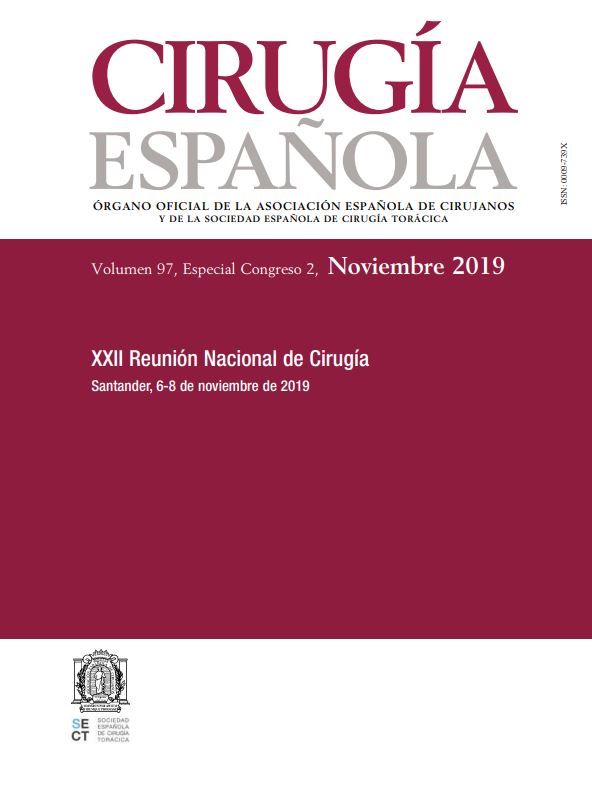P-324 - ROBOTIC ASSISTED RIGHT COLECTOMY. CASA MATCHED STUDY WITH LAPAROSCOPIC APPROACH AND COST EFFECTIVENESS ANALYSIS
Hospital de Madrid Norte-Sanchinarro, Madrid.
Introduction: The aim of this study was to compare the long-term outcomes of robot-assisted right colectomy (RAC) with those for conventional laparoscopy-assisted right surgery (LAC) for treating right-sided colon cancer. The enthusiasm for the robotic techniques has gained increasing interest in colorectal malignancies. However, the role of robotic surgery in the oncologic safety has not yet been defined.
Methods: From September 2009 to July 2011, 71 patients with right-sided colonic cancer were randomized in the study. Adjuvant therapy and postoperative follow-up were similar in both groups. The primary and secondary endpoints of the study were hospital stay and survival, respectively. Data were analyzed by intention-to-treat principle.
Results: The RAC and LAC groups did not differ significantly in terms of baseline clinical characteristics. Compared with the LAC group, RAC was associated with longer operation times (195 min vs 129 min, p¿ < ¿0.001) The median follow-up was 49.23 months (interquartile range 40.63-56.20). The combined 5-year disease-free rate for all tumor stages was 77.4% (95% confidence interval [CI], 60.6-92.1%) in the RAC group and 83.6% (95%CI 72.1-97.0%) in the LAC group (p = 0.442). The combined 5-year overall survival rates for all stages were 91.1% (95%CI 78.8-100%) in the RAC group and 91.0% (95%CI 81.3-100%) in the LAC group (p = 0.678). Using multivariate analysis, RAC was not a predictor of recurrence. Costs of RAC and LAC were 9.455. 14 and 8,227.50 respectivle (p 0.113).
Conclusions: RAC appears to similar long-term survival as compared with LAC. However, we did not observe any clinical benefits of RAC which could translate to a decrease in expenditures.








